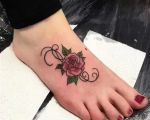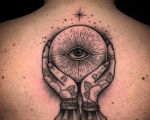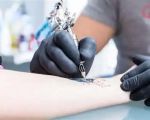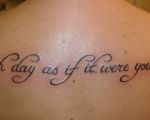Do You Tip at Tattoo Shops? A Complete Guide on Tipping for Tattoos
Getting a tattoo is an exciting experience, but many people often wonder about the etiquette surrounding tipping at tattoo shops. As someone who’s gotten my fair share of tattoos, I can tell you that knowing when and how much to tip is just as important as choosing the right design. In this guide, I’ll break down everything you need to know about tipping your tattoo artist, from why tipping is customary to how much you should leave, and even how to show appreciation in other ways.
1. Why Tipping Is Important at Tattoo Shops
As with most service industries, tipping is a way to show appreciation for the work and effort your tattoo artist has put into creating your masterpiece. I’ve learned that artists put a lot of skill, time, and creativity into each tattoo, and tipping is a way to acknowledge that hard work. The tattoo artist’s income often depends on tips, especially since their hourly rates or flat fees may not always reflect the full value of the service they provide.
1.1 The Customary Tipping Practice in the Tattoo Industry
Tipping is an important part of the tattoo industry’s culture, and while it’s not mandatory, it is highly encouraged. Just as you might tip a hairstylist or server for good service, your tattoo artist deserves recognition for their craftsmanship. From what I’ve experienced, it’s best to tip based on the quality of the work and the overall experience. Tipping shows respect for the artist’s skills and professionalism, and it can go a long way in establishing a positive relationship with them.
2. How Much Should You Tip at a Tattoo Shop?
Now comes the question: how much should you tip your tattoo artist? The general rule of thumb is to tip 15% to 20% of the total cost of the tattoo. However, I’ve found that there are several factors to consider that may affect the amount you decide to tip. From the complexity of the design to the time spent during the session, each factor can influence your tipping decision.
2.1 Tipping Based on the Cost of the Tattoo
One of the simplest ways to calculate your tip is by considering the cost of the tattoo. For example, if your tattoo cost $200, a 20% tip would be $40. If the tattoo was larger, more intricate, or took longer than expected, you may feel inclined to tip more. On the other hand, if you received a small tattoo or a simple design, a smaller tip might be appropriate.
2.2 Considering the Time and Effort
The amount of time your tattoo session took is also an important factor in determining the tip. If you spent several hours in the chair and the artist worked hard to create your vision, a larger tip is always appreciated. I’ve personally tipped more when I’ve had longer sessions because I know it’s exhausting for the artist to work for extended periods of time while maintaining focus and precision.
3. How to Tip When Getting Multiple Sessions
If your tattoo is a multi-session piece, it’s a good idea to tip at the end of each session, especially if the artist’s work has been consistently great. Tipping after each session shows appreciation and ensures that the artist knows you are satisfied with their work throughout the process. In my experience, this helps establish trust between the artist and client, and I’ve found it encourages open communication about future sessions.
3.1 Example of Tipping Across Multiple Sessions
For example, if your tattoo artist worked on your piece for three sessions, each lasting three hours, and the total cost for each session was $300, you would typically tip 15% to 20% per session. This means after each session, you’d give a tip of $45 to $60. Some artists prefer tips at the end of the entire tattoo process, but tipping per session works well when the process is lengthy and you want to reward the artist as you go.
4. Non-Monetary Ways to Show Appreciation
While tipping is an important part of showing gratitude, there are also other ways to thank your tattoo artist for their work. I’ve found that artists appreciate the personal touches like leaving a positive review or sharing their work on social media. Many tattoo artists take great pride in their portfolios, and spreading the word about their skills is a meaningful gesture of appreciation.
4.1 Leaving a Review or Recommendation
After my tattoos, I’ve always left a review online or shared pictures on my social media accounts, tagging the artist. This not only helps their business but also shows that I genuinely appreciate the work they’ve done. A glowing review can go a long way in supporting a tattoo artist’s career, and it’s something that doesn’t cost anything but time and gratitude.
5. Is Tipping Required in Tattoo Shops?
It’s important to note that tipping at a tattoo shop is not mandatory, but it is greatly appreciated. In many places, the cost of a tattoo does not include a tip for the artist. Some tattoo shops might even have a “no tipping” policy, where the price you pay for the tattoo is the full amount, with no expectation of an additional tip. However, in my experience, the vast majority of tattoo artists rely on tips as a significant portion of their income.
5.1 The Culture of Tipping in Tattoo Shops
The culture of tipping in the tattoo world is similar to other service industries, where tipping is seen as a reward for excellent service and talent. It’s not only a way to say “thank you” but also a means of showing respect for the artist’s craft. If you’ve had a positive experience with your artist, tipping is an excellent way to ensure they know their work is valued.
6. When to Tip and When Not to Tip
As a general rule, if you are satisfied with your tattoo and the overall experience, you should tip. If the artist went above and beyond to make you feel comfortable or if the tattoo exceeded your expectations, that’s an even better reason to leave a generous tip. However, if you have concerns about the quality of the work or if the artist was unprofessional, you might consider not tipping, though I always recommend discussing any issues directly with the artist or the shop before deciding not to tip.
6.1 Situations Where Tipping Might Not Be Appropriate
While it’s rare, there might be situations where a tip is not warranted. If you experience poor customer service or dissatisfaction with the tattoo, it’s important to address the issue first. A constructive conversation with the artist or shop manager could resolve the issue, and if you still feel the work didn’t meet your expectations, it may be best not to tip. However, most artists in my experience will do their best to ensure customer satisfaction.








